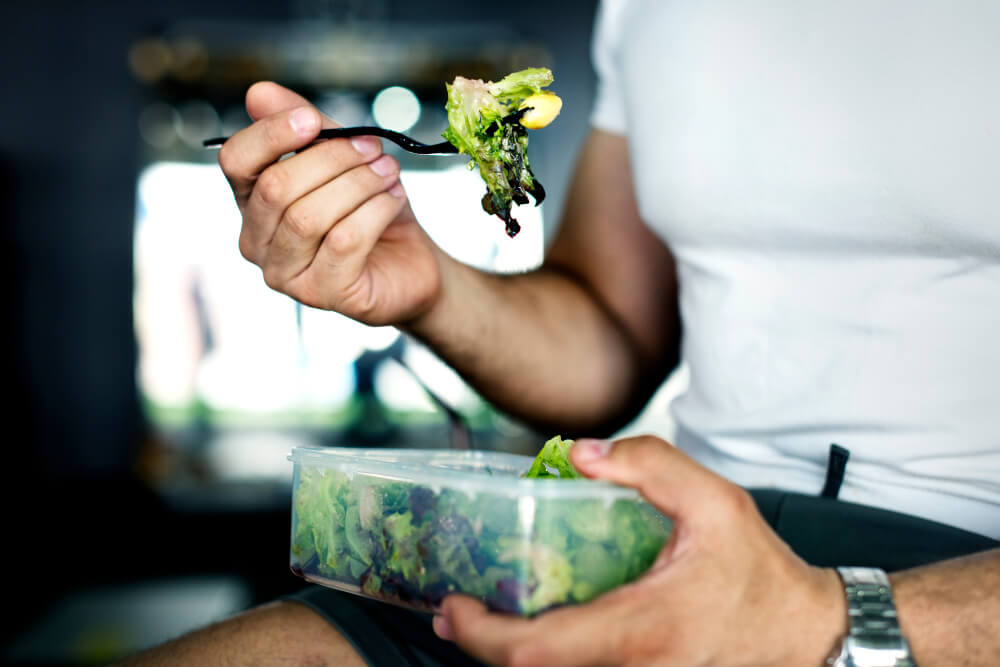In today’s fast-paced world, it’s easy to fall into the trap of convenience foods and unhealthy eating habits. However, taking care of our bodies and nourishing them with nutrient-rich foods is crucial for overall well-being. That’s where clean eating comes in. Clean eating is not a restrictive diet but rather a lifestyle that focuses on consuming whole, unprocessed foods that provide essential nutrients. In this article, we will explore the benefits of clean eating and provide practical tips to help you incorporate this approach into your daily routine.
What is Clean Eating?
Clean eating is a dietary philosophy that emphasizes choosing foods in their most natural form, free from additives, preservatives, and artificial ingredients. It involves opting for whole foods, such as fruits, vegetables, whole grains, lean proteins, and healthy fats, while minimizing or eliminating processed foods, refined sugars, and unhealthy fats. Clean eating is not about deprivation or strict rules but rather about making conscious choices to fuel your body with nutrient-dense foods.
The Benefits of Clean Eating
Increased Nutritional Value: Clean eating ensures that you are nourishing your body with foods that are rich in essential nutrients. Whole foods are packed with vitamins, minerals, fiber, and antioxidants that support optimal health and help protect against chronic diseases.
Improved Digestion: By focusing on whole, unprocessed foods, clean eating promotes a healthy digestive system. Whole grains, fruits, and vegetables are excellent sources of fiber, which aids in digestion, promotes regular bowel movements, and supports a healthy gut microbiome.
Enhanced Energy Levels: Clean eating provides a steady supply of energy throughout the day. By avoiding processed foods high in added sugars and unhealthy fats, you can avoid energy crashes and maintain stable blood sugar levels.
Weight Management: Clean eating can support healthy weight management. Whole foods are typically lower in calories and higher in nutrients, helping you feel satisfied and nourished while maintaining a balanced weight.
Tips for Incorporating Clean Eating into Your Lifestyle
Fill Your Plate with Colorful Fruits and Vegetables: Aim to include a variety of fruits and vegetables in your meals. They are rich in vitamins, minerals, and antioxidants. Add them to salads, stir-fries, smoothies, and snacks for a burst of flavor and nutrition.
Choose Whole Grains: Opt for whole grains such as quinoa, brown rice, oats, and whole wheat bread instead of refined grains. Whole grains provide more fiber and essential nutrients compared to their refined counterparts.
Include Lean Proteins: Incorporate lean protein sources like poultry, fish, tofu, legumes, and nuts into your meals. Protein is essential for muscle repair, growth, and overall health.
Healthy Fats are Essential: Include sources of healthy fats in your diet, such as avocados, nuts, seeds, and olive oil. These fats are important for brain function, hormone production, and nutrient absorption.
Minimize Processed Foods and Added Sugars: Be mindful of processed foods, which are often high in added sugars, unhealthy fats, and preservatives. Instead, choose fresh, whole foods as the foundation of your meals.
Drink Plenty of Water: Hydration is key to overall health. Aim to drink enough water throughout the day to stay properly hydrated and support your body’s functions.
Why Eat Clean?
Clean eating is a lifestyle approach that prioritizes whole, unprocessed foods and aims to provide your body with the nutrients it needs to thrive. By embracing clean eating, you can improve your overall health, enhance digestion, boost energy levels, and support weight management. Remember, clean eating is not about perfection but rather making mindful choices and finding a balance that works for you. Start by incorporating some of the tips mentioned above, such as adding more fruits and vegetables to your meals, choosing whole grains, including lean proteins, and opting for healthy fats. Gradually make small changes to your eating habits, and over time, you will begin to notice the positive effects of clean eating on your body and well-being.
It’s important to remember that clean eating is a flexible concept that can be adapted to fit your individual preferences and dietary needs. Listen to your body and make choices that work best for you. Experiment with different recipes, flavors, and ingredients to keep your meals interesting and enjoyable. Remember, clean eating is not about deprivation or strict rules, but rather about nourishing your body and feeling your best.
Plan Ahead for Success
Incorporating clean eating into your lifestyle may require some planning and preparation, especially in today’s fast-paced world. However, with a little bit of effort and mindfulness, you can make it a seamless part of your routine. Here are a few additional tips to help you along the way:
Meal Prep: Dedicate some time each week to plan and prepare your meals. This can include chopping vegetables, cooking grains, and pre-portioning meals and snacks. Having healthy options readily available will make it easier to stick to your clean eating goals, even on busy days.
Read Labels: When purchasing packaged foods, read the labels carefully. Look for products with minimal ingredients and avoid those that contain added sugars, artificial additives, or unhealthy fats. Choose products that are as close to their natural state as possible.
Cook at Home: Cooking your own meals gives you full control over the ingredients you use. Explore new recipes and experiment with different flavors and cooking techniques. Not only is it a healthier option, but it can also be a fun and creative activity.
Mindful Eating: Slow down and savor your meals. Practice mindful eating by paying attention to the flavors, textures, and sensations of each bite. Listen to your body’s hunger and fullness cues and eat until you feel satisfied, not overly stuffed.
Find Support: Surround yourself with like-minded individuals who share your passion for clean eating. Join online communities, participate in cooking classes, or start a healthy eating club with friends. Having a support system can provide motivation, inspiration, and the opportunity to share experiences and recipes.
Final Thoughts
Remember, clean eating is a journey, not a destination. It’s about making sustainable choices that align with your goals and preferences. Be patient with yourself and celebrate the progress you make along the way. By fueling your body with nutrient-rich foods and embracing a clean eating lifestyle, you are taking a proactive step towards enhancing your health and well-being.
In conclusion, clean eating offers a holistic approach to nourishing your body with wholesome, nutrient-rich foods. By focusing on whole, unprocessed ingredients and making mindful choices, you can experience a range of benefits, including increased nutritional value, improved digestion, enhanced energy levels, and support for weight management. Embrace the principles of clean eating and enjoy the journey towards a healthier and more vibrant you.









Leave A Comment